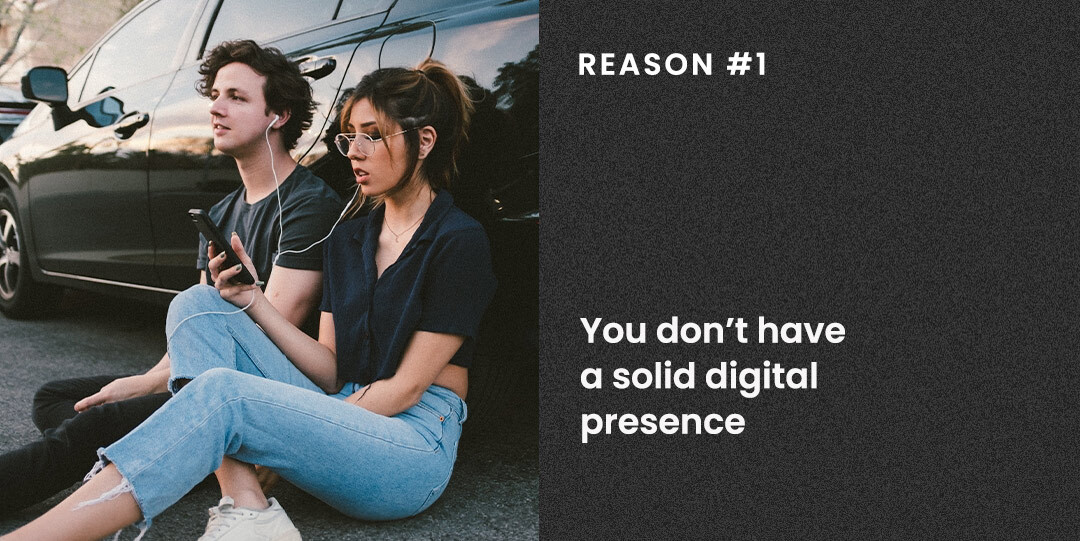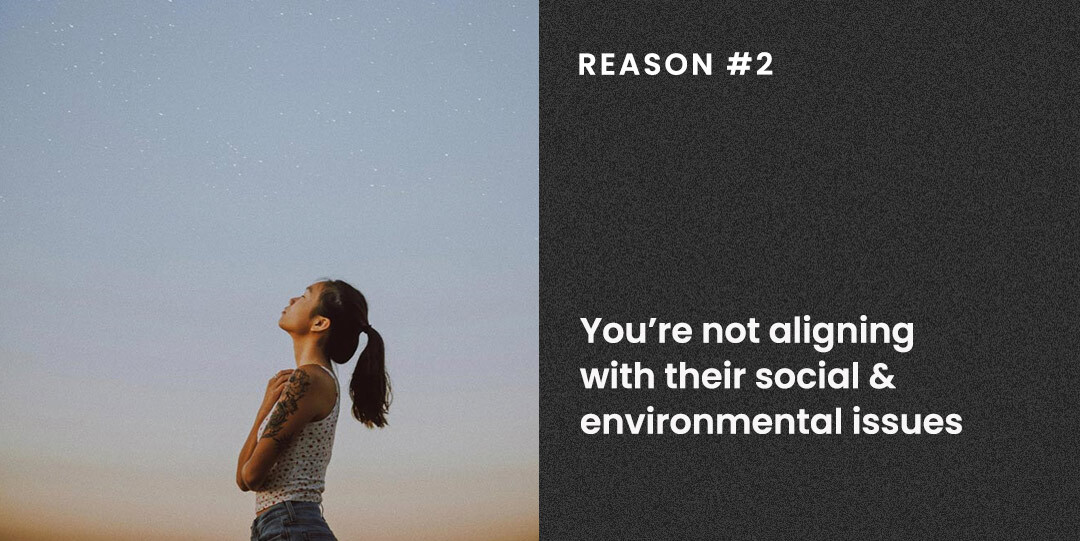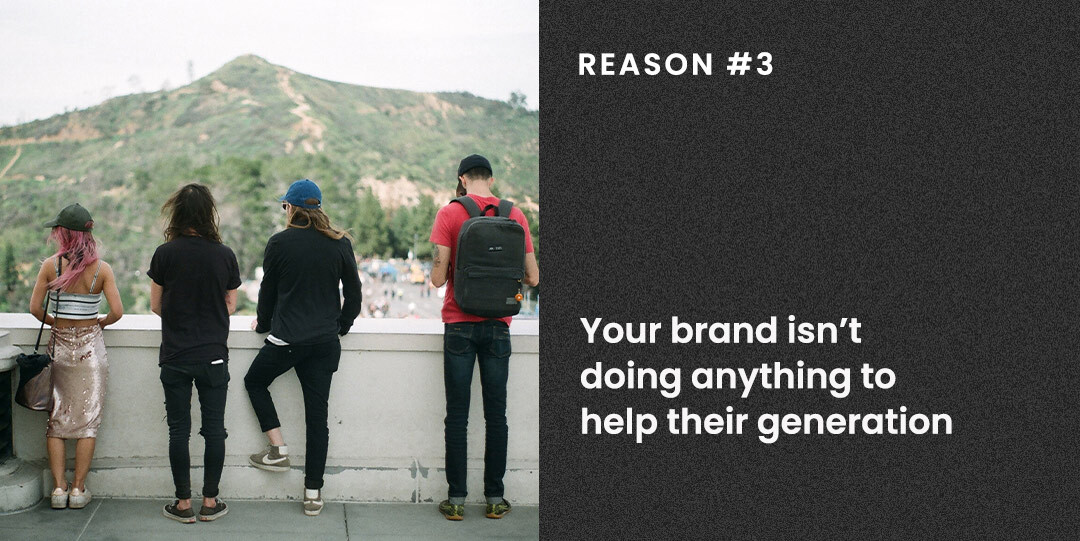Marketing to Gen Z is a lot like trying to be cool in high school – if you’re trying too hard, it shows, but if you don’t try at all, you’re irrelevant. Approach them meekly and they’ll eat you alive. But if you’re feeling confident and cocky? Well, then you’re probably failing in quite spectacular fashion.
However, much like the mullet making a miraculous comeback in the 21st century, we as marketers must persist and prevail. Gen Zs already make up a huge portion of the consumer market and together with their penchant for setting trends and controlling boycotts, their influence and spending power is unrivalled.
We understand how difficult it can be for brands to create marketing strategies that actually engage youth. And we know how mistakes in marketing can ultimately affect your bottom line. So, we went straight to the source of the problem and asked Gen Z about it. Through our market-leading surveys and research, we’ve identified three key reasons why young people aren’t interested in your brand.

Let’s make one thing clear: we don’t just mean creating a Facebook page and calling it a day. While these days it’s common knowledge that younger generations have abandoned traditional and print media, simply transposing conventional marketing strategies to online mediums just won’t cut it.
Companies need to have a dynamic online presence that engages with young people in the ways they actually want to be engaged with.
Our research has found that 73% of Gen Zs think older generations don’t communicate with them effectively. This means that marketing teams are often speaking a different language to their targeted youth audience, and in ways that aren’t natural to them in their online world.
Ham-fisted corporate memes, inaccessible landing pages and tone-deaf ad campaigns are just some of the ways brands have bungled digital marketing strategies. We’re not saying to stop paid advertising, but you need to know how, when and where to reach them.
“Instagram ads are good because they’re tailored to your interests and aren’t in your face,” said one of our survey respondents, an 18-year-old from WA.
“I can live with sponsored ads on Instagram because I can swipe past it if it doesn’t relate to me. That’s the idea, it’s a quick glance of what it’s selling.”
Alongside paid ads, brands creating content that actually adds value to young people’s lives will see an uptick across all stages of their marketing funnel. What you’re doing here is creating an interested community around your brand and utilising all the appropriate online tools to foster this.
“Businesses should interact with their fan base rather than just advertise – it shows a greater sense of disconnect to followers when you only see ads or ‘new’ products,” said another survey respondent, a 22-year-old from NSW.
“Consumers can connect more if they feel they can help, influence and interact with the brand they love e.g. using Instagram’s ‘Ask me a question’ or voting polls. Through these methods consumers develop a greater sense of trust as the separation of brand and consumer is shortened.”

According to our Gen Z & Corporate Activism report, 88% of Gen Zs are more likely to buy from a business that puts part of its profits towards good causes. 86% will also spend more on a product or service if it matches their environmental and social concerns.
Simply put, it’s not just a matter of appearing “woke” or virtue-signalling over social media; today’s youth have made it clear they’re willing to put their dollars behind their beliefs.
“If businesses are to profit, they should attempt to inject good back into the world from which they profit,” explained one of our survey respondents, a 17-year-old from SA.
These issues include those that are inherently tied to their respective industries, such as climate change for energy providers and working conditions for textile and clothing brands. However, 81% of youth also say that big businesses should be working to solve issues that aren’t related to their industry.
Recent significant events including bushfires and Black Live Matters protests across the world have reinforced this notion, with many more companies coming together in the last year to support various social movements either through donations or more visible marketing campaigns. However, it’s important that brands maintain authenticity throughout all of this. It’s far more effective when positive social action is embedded into a brand’s mission, rather than haphazardly thrown in as an afterthought.
“Businesses need to act in a way that is not tokenistic and show genuine care for a better Australia and a better world,” said another survey respondent, a 22-year-old from NSW.
“I avoid the businesses that are tokenistic and celebrate those that actually have a moral conscience. It is easy to read which businesses truly are passionate, driven and moral.”

Young people and Gen Z in particular are easy targets for the media. As the old saying goes, narratives are written by those with marketing degrees and quite frankly, us old farts like to paint them as a whiny, entitled bunch.
In reality, Gen Zs are being hit the hardest by the coronavirus pandemic and are leaving school to find a brutal job market, a rampant youth mental health crisis and ongoing housing affordability issues.
Against this backdrop, brands that are actively engaging in youth issues are seen as saints and saviours – and ultimately worthy of Gen Z’s patronage.
“I really believe businesses, especially those with huge social presence and influence, can be really effective mediums in spreading messages and tools of support for youth,” said a 19-year-old survey respondent from NSW.
“Businesses need to learn that Gen Z have a huge impact on everyday spending,” said another.
When we asked Gen Z what actions they would like to see businesses do to impact more positively on society and the environment, 44% said ‘activism on issues’ and 33% ‘social/community programs’.
Unique partnerships with youth organisations or initiatives are therefore an effective output for your marketing efforts. Not every organisation can be in the business of helping youth – or solving global issues – but by simply aligning your brand with those that are, you’ll be building trust with Gen Z that will ultimately lead to better business. Not to mention a better world!






